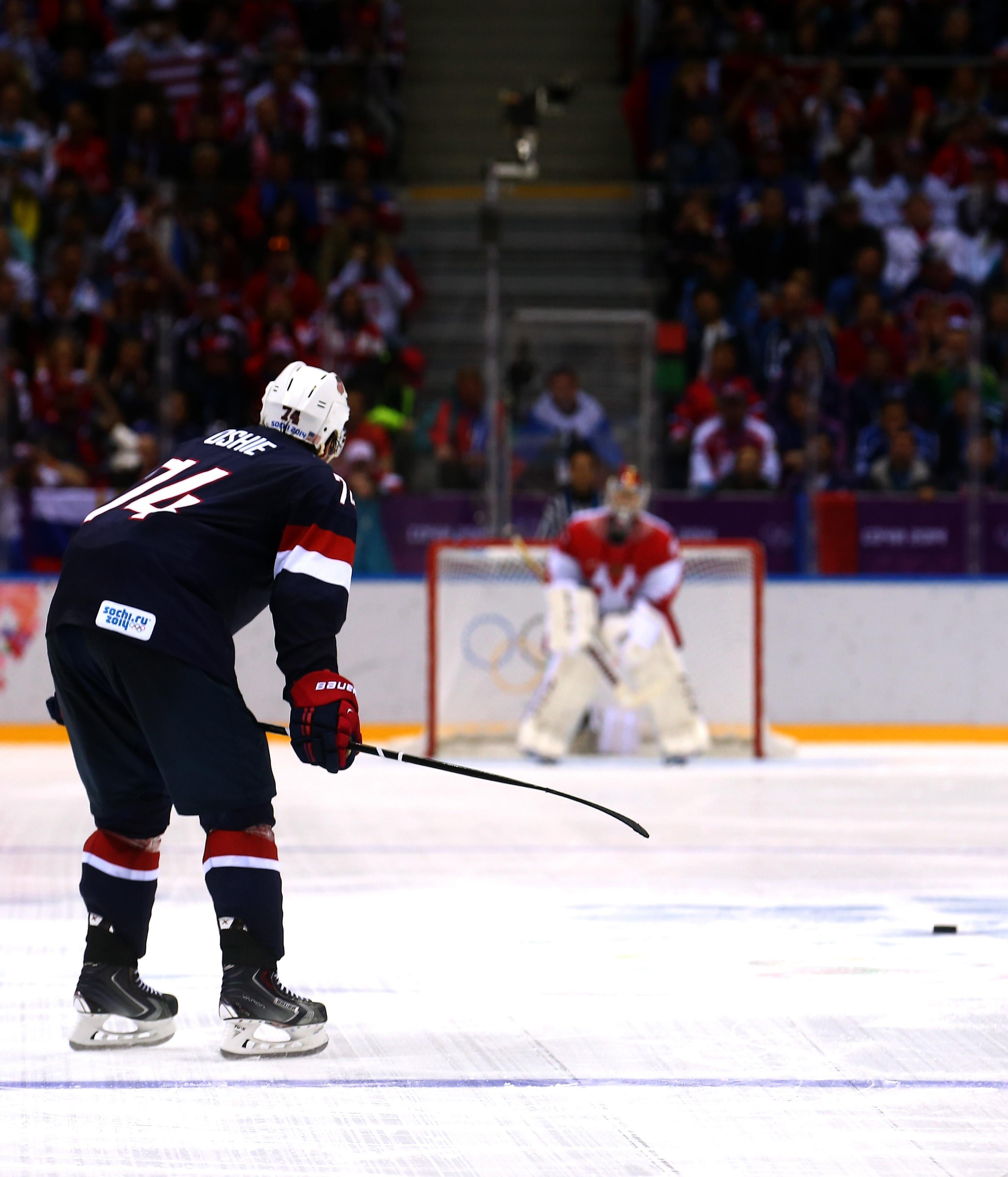Canada’s Drew Doughty brought an overdue end to the group stage of the men’s hockey tournament late on Sunday night in Sochi when he snuck an overtime game-winner past Finland’s Tuukka Rask. It was a thrilling end to a high-profile matchup between the defending gold-medal winners and the most-decorated team in the Olympics’ NHL era. It was also, like the rest of the preliminary rounds, essentially meaningless.
With 18 games now in the books, all 12 teams—yes, every single squad that made the trip to Sochi this month—remain alive. That was by design, not chance. The win-or-stick-around-anyway format that was put in place before the Vancouver Games ensures no team is sent packing before its fourth game. That means Sweden, the only squad to win all three of its games in regulation this year, plays on in Sochi. And so too does Norway, which went winless while posting the worst goal differential in the opening week. Same for everyone else wearing an official Sochi patch on their hockey sweater.
This is an observation, not a complaint. The early games may have been little more than an exhibition, but they were still must-watch TV for any hockey fan. And the Cold War-worthy USA-Russia showdown was the type of instant classic even casual fans dream about. If the NHL stars weren’t invested in each game’s outcome, it certainly didn’t show. There was 43-year-old Teemu Selanne briefly returning to his NHL ‘94 form to add a few more points to his all-time Olympic scoring record. There was Swiss goaltender Jonas Hiller posting two full hours of shutout hockey to carry his scoring-phobic team to two wins. And I’d gladly continue to set my alarm clock for another week of stick-and-puck pageantry in exchange for even the slightest chance of witnessing T.J. Oshie, the most American of American hockey heroes, take part in another shootout.
It’s just that as much as NBC wanted you to believe otherwise, Olympic history tells us that the only things the preliminary rounds actually determined—the 1-through-12 seeding and the four first-round byes—haven’t been worth anywhere near their weight in gold in the NHL era that began in Nagano.
This is a small sample size to be sure, but consider: Since the NHL began sending its players to the Olympics in 1998, no top seed has ever gone on to claim gold. In fact, three of the four NHL-era Olympic champions entered the elimination rounds as a relatively lowly six seed, while the fourth gold medalist was seeded third. Given that, it’s hard to see what all the seeding fuss has been about these past few days.
For what it’s worth, Sweden is the No. 1 seed, while the USA, Canada, and Finland are 2, 3, and 4 respectively. More important than those numbers is the fact that those four squads earned free passes to the quarterfinals. Well, at least you’d think those byes are important. Sure, any team would prefer to play one less elimination game, but the only legitimate gold-medal favorite stuck in the qualification round is Russia (the No. 5 seed), and they’ll be able to use their game against winless Norway as a televised practice.
And let’s not forget that it was only four years ago—when byes were handed out for the first time—that the world watched as Canada stumbled into the qualification round only to win four straight elimination games and the gold medal on their home ice. The Vancouver silver medalists, meanwhile, were an American squad that had run the table in the prelims, including a victory over their hosts, as they did this time in Sochi.
Yes, some of the favorites find themselves with more appealing draws than their top-flight rivals, but that is due largely to chance, not seed. Even this year’s no. 1, Sweden, will likely have a very tough draw, needing to knock off the winner of an almost-certain Russia-Finland quarterfinal followed by whoever wins a likely North American grudge match in the other semifinal. Or take the Americans, who played inspired hockey to earn the No. 2 seed, only to face the possibility of having to go through two Olympic champions in the Czechs and the Canadians just to reach the finals in the Bolshoy Ice Dome. What’s more, neither of the top two seeds’ situations are even unusual. No squad has ever gone on to win a medal of any color in the NHL era without first dispatching at least two star-studded rivals along the way.
All that is to say the state of play in Sochi remains the same now as it was before the past five days’ worth of games, as entertaining as they’ve been. There were only six legitimate medal hopefuls entering the tournament. There are still only six, the same six, entering the elimination rounds: the USA, Canada, Russia, Finland, Sweden, and the Czech Republic. That was aways going to be the case—or, more specifically, it’s always been the case. Those six teams have taken every single Olympic gold, silver, and bronze medal handed out since Nagano, and none have ever failed to make it to the quarterfinals, regardless of their seed. So with apologies to the stingy Swiss (no. 6) and scrappy Slovaks (no. 10), there’s little reason to expect a different outcome this time around.
Which brings us back to this week, when the real action begins and the games actually matter for the first time since Vancouver. I can’t wait.
